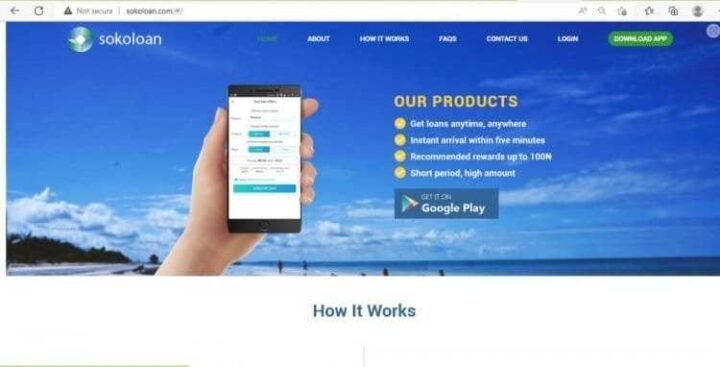How To Get A Business Loan In Ontario, Canada?
How To Get A Business Loan In Ontario? Are you looking for how to get a loan to start a business in Canada? The province of Ontario, Canada provides an excellent business environment for entrepreneurs and small businesses to expand their business. According to recent surveys, Ontario is considered one of the best places in the world for companies to establish their headquarters and for investors to invest in new ventures, making it vital for entrepreneurs to access a small business loan in Ontario.
The rationale for this investor-friendly environment is a stable and competitive business landscape that enables companies to implement high-quality business practices and grow in a competitive business environment. Long-term political and economic stability allows lenders to fund businesses in this region with long-term payments, which is exactly why Ontario (and Canada) has one of the most stable banking systems in the world.
Business Loan Options in Ontario
1. Bank loans
If you are looking for how to get a business loan in Ontario or where to get a business loan in Ontario, then, a bank is the first place to think of. Banks have streamlined loan disbursement processes that have been refined over the years of their industrial activity. Many banks in Ontario offer businesses a variety of financing options tailored to their operational needs. Every bank has its eligibility criteria that they use to assess the health of your business. Banks known in Ontario for commercial lending include TD, RBC, CIBC, BMO, Bank of Nova Scotia, and Business Development Bank of Canada.
If you don’t automatically qualify for a business loan from your bank, organizations like CSBFP – Canada Small Business Financing Programs can share your risk with your financial services provider to increase your loan limit to $1 million. Once distributed, these loans can be used for business upgrades and the purchase of new equipment, in addition to store inventory.
The downside of bank loans often comes down to strict approval criteria and long application turnaround times. Banks can lend money to high-income small businesses that have been around for a long time and whose owners have high personal credit ratings. This means that there are a large number of small businesses that do not qualify for low-interest bank financing. For example, a newly opened restaurant that has been around for a year or more could be considered a very risky investment for the bank. Fortunately, these companies have other options.
2. Online Business Loan Providers
Another way how to get a business loan in Ontario, Canada is using online business loan providers. As the name suggests, these types of loans take small business owners into an online experience to apply for (and hopefully get approved) a loan. Companies like OnDeck look at small businesses from a different paradigm when assessing their credibility. They are looking for metrics that express a healthy business, rather than relying on the business owner’s personal credit history. The approval process is less rigid for a small business loan from this company than it is from a bank, but interest rates can be higher (depending on the lender).
You can usually get the loan in several ways, from a typical term loan with regular payments or a line of credit.
The loan is usually unsecured, meaning no collateral is needed to get the money, and the money can be used for anything the business needs, including inventory, staff, new equipment, expansion, and more.
3. Secured Loans
You can also use secured loans for how to get a business loan in Ontario, Canada. If you want to buy specific equipment, such as a truck, bus or production equipment for your business, you can finance that purchase directly. This means that the loan you receive is specifically for that purchase and that the newly purchased item is used as collateral for your loan. If a freight company operator finances a new truck but is unable to pay regularly, this truck may be repossessed by the creditor.
4. Crowdfunding
Crowdfunding can be an effective option to secure working capital from a large number of people interested in contributing to your business idea. One type of crowdfunding involves small individual investors participating in an equity stake in your small business. Collective investors often fund online and are attracted to Ontario’s growing and stable business environment.
Investors are paid through rewards such as company shares or equal monthly installments. This type of financing requires a strong business idea and the ability to motivate investors to participate in your business idea. Crowdfunding is also a great way to test new products and validate ideas among the crowd.
What Lenders Look For in a Small Business Loan Applicant
By taking the right steps to prepare ahead of time for how to get a business loan in Ontario, small business owners can greatly increase their chances of getting the small business loan they need. If it is clear that you need a loan, you must determine whether you are eligible for a loan. Most lenders look for the following:
Guarantee
More traditional credit institutions generally place a high value on collateral. A secured business loan can provide you with the capital you need, it is usually a little easier to get a loan backed by some sort of collateral. Startups or small businesses are generally not rich in assets, so you may need to use personal collateral, such as your home or vehicle, to secure the loan you want.
Effort
This is the amount you commit to your business. The more you inject, the more favourable potential lenders will view your loan application. Potential lenders will try to ensure you have invested a significant amount before offering additional financing.
Credit history
Your business must have your credit score and credit history, this will give potential lenders information on how to handle your business finances. If your business is still young and you haven’t had time to develop your credit history, potential lenders may want to review your personal credit history and score.
Business Age
One of the biggest factors lenders use when evaluating your eligibility for a loan is your time in business. The longer you are active, the more stable and attractive you are as a candidate. In general, private or alternative lenders look for companies that have been in business for at least a year, while traditional banks look for two years or more. If you are a start-up with 3 months or more, you may be eligible for a starter loan.
Cash flow
Your cash flow is measured using the forecast created in your business plan. You also need to be clear about the type of financing you need; whether it be equipment financing or working capital financing. Also, you must show exactly how you intend to use the requested resources and how much is needed to achieve your goals. To increase your chances of getting a small business loan, you need to make a good impression on potential lenders. You can achieve this by:
- Have a solid management team
- Demonstrating the potential for continued business growth.
- Demonstrating profitability. To facilitate the payment of your business loan, it is important for you as an entrepreneur to illustrate how your business wants to be profitable shortly.
- Think long-term. It is beneficial for you to opt for long-term financing that allows you to pay lower costs in the short term while having the time and money to invest in the long term.
Annual Revenue
When you apply for a business loan, lenders usually have a basic annual income that you must meet. In general, lenders require annual revenue of $80,000 to $100,000 or a monthly income of $5,000 to $7,000 from ticket sales.
What do you need to apply for an SME loan?
When applying for a business loan, you must provide certain information about your business and yourself. If you are applying to a bank, you will probably need to make an appointment in-person to complete the form; However, if you are applying to an alternative lender, you can probably fill out the form online.
- Your personal information (full name, contact details, SIN number, etc.)
- Your personal financial information (income, bank account information)
- Your company details (company name, industry, uptime, address, telephone number and email address)
- Your financing needs (how much you need and why you need it)
Documents you may need to submit during or after the application
To verify the information in your application, some lenders will ask you for certain documents.
- Business Plan – Whether you are a new or an old business, having a business plan that can demonstrate why you need a loan and how you intend to use it can go a long way towards gaining the trust of your lender and showing it off of your bet.
- Bank statements – Lenders typically want to see the money flow to and from your business bank account.
- Balance Sheet – These are usually needed so that your creditor can assess your total assets and liabilities.
- Income statement – Your income statement allows your creditor to see what your expenses are, how much your cost of goods sold is, and what your net income is.
- Tax Return – Your lender will use this to confirm that the income you are claiming is the same as the income you reported to the CRA. Any deviations may jeopardize the approval of your application.
- Personal Financial Records – Some creditors may want to see your credit report to understand your financial health. The better you look, the more believable you look.
How To Get A Business Loan In Ontario?
Breaking it down into manageable steps — from understanding qualifications to shopping with lenders to knowing how to get a business loan in Ontario — can help secure the financing your business needs.
Here’s how to get a business loan in Ontario, Canada in seven easy steps.
1. Determine what type of loan you need to finance your business
Lenders will ask you why you need a small business loan. Your answer will likely fall into one of three categories and will determine which type of business loan is right for you:
- SBA loans or traditional term loans. They often have high loan caps – SBA loans, for example, can go as high as $5.5 million. Many lenders also offer specific products to meet the needs of a growing business, such as loans to purchase equipment or vehicles.
- Start-up financing, such as business credit cards and personal loans. These lenders require cash flow to support loan repayments, so businesses typically cannot get business loans in their first year. Instead, you are dependent on another financing.
- A business line of credit. This can make sense if you want to manage day-to-day expenses. This type of flexible financing allows you to use the financing as needed to cover expenses such as payroll or unexpected repairs, providing a useful safety net.
2. Determine if you are eligible for a business loan
Answer these questions to determine if you can meet the eligibility requirements for a small business loan:
What is your credit score?
You can get your credit report for free from any of the three major credit bureaus: Equifax, Experian, and TransUnion. You can also get your credit score for free from many credit card issuers and personal finance websites, including NerdWallet.
Banks prefer to offer their low-interest business loans to borrowers with a credit score of more than 680, said Suzanne Darden, a financial expert at the Alabama Small Business Development Center. If your credit score falls below this threshold, consider small business loans for bad credit borrowers or loans from a nonprofit microcredit provider.
How long have you been in business?
You must be in business for at least one year to qualify for most online small business loans and at least two years to qualify for most bank loans.
Are you earning enough?
Many lenders require a minimum annual income, which can range from $50,000 to $250,000.
If your income isn’t high enough, consider short-term commercial loans, SBA microloans, or even equipment financing.
3. Decide which payments you can afford
Take a close look at your company’s finances — especially cash flow — and assess how much you can request for loan payments each month.
Some online lenders require daily payments, so keep that in mind.
To comfortably pay off your loan each month, your total income needs to be at least 1.25 times your total expenses, including your new repayment amount, Darden says. For example, if your business income is $10,000 a month and you pay $7,000 in rent, payroll, and other expenses, you can pay off a $1,000 monthly loan. Your income ($10,000) is 1.25 times $8,000 in expenses.
4. Decide if and how you want to secure the loan
A secured loan requires collateral, such as property or equipment, that the lender can seize if you default on the loan.
Placing collateral is risky, but it can also increase the value of lenders so you can borrow and get a lower interest rate.
Lenders may also require a personal guarantee, even for unsecured loans. This means that you will pay off the loan in person if your business can’t, and it can allow a lender to chase things like your home or car in the event of default.
5. Compare Small Business Lenders
There are three main sources of small business loans: online lenders, banks, and not-for-profit microloans. Each usually has multiple products, but some may be better than others in certain cases.
When to get a business loan from online lenders:
- You have no warranty.
- You don’t have time in business.
- You need financing quickly.
Online lenders offer small business loans and lines of credit for about $1,000 to $5 million. The average annual percentage rate on these loans ranges from 6% to 99%, depending on the lender, the type and size of the loan, the length of the repayment term, the borrower’s credit history and collateral need.
These lenders rarely have APRs as low as traditional banks, but approval rates are higher and financing is faster than banks – up to 12 hours.
When to get a business loan from banks:
- You have been on the market for at least two years.
- You have good credit.
- You don’t need quick money.
Traditional banking options include term loans, lines of credit, and commercial mortgages to buy or refinance real estate.
Through banks, the US Small Business Administration provides general loans to small businesses with its 7(a) loan program, short-term microloans and disaster loans. The SBA offers loans of up to $5.5 million, with 7(a) loans averaging $704,581 in fiscal 2021, according to the Congressional Research Service. The average SBA microloan is $13,000.
The SBA also has a 504 loan program that helps promote the economic development of communities by financing the purchase of fixed assets — such as land, buildings or equipment — through long-term, fixed-rate financing.
Getting a small business loan from a bank can be difficult due to factors such as lower sales volume and cash reserves. Add to that bad personal credit or no collateral, and many small business owners walk away empty-handed.
Getting financing takes longer than other options, but banks are often the lowest-APR option.
When to get a commercial microcredit loan:
- You have bad credit or no credit history.
- You are a new company.
- You cannot get a traditional loan.
Microlenders are non-profit organizations that typically lend short-term loans of less than $50,000. The APR on these loans is generally higher than that of bank loans. The application may require a detailed business plan, financial statements and a description of how to use the loan, making it a time-consuming process.
Moreover, the size of loans is by definition “micro”. But these loans can work well for smaller businesses or startups that don’t qualify for traditional bank loans because of limited business history, poor personal credit, or lack of collateral.
Accion Opportunity Fund, Kiva and Accompany Capital are just a few examples of microcredit.
6. Collect your documents
Before you sign up, make sure you have all the necessary documentation. Now, if you locate these files and make them easily accessible, you can streamline the process of getting a small business loan.
Depending on the lender, you must submit a combination of the following:
- Business and individual tax returns.
- Business and personal bank statements.
- Business financial statements.
- Legal business documents (e.g. bylaws, commercial lease, franchise agreement).
- business plan.
7. Apply for a business loan
You did it! Now that you’ve determined which loan type and lender is right for you, it’s time to apply.
Start by looking at two or three comparable options based on loan terms and annual percentage rate, or APR. Since the APR includes all loan costs in addition to the interest rate, it is the best way to understand the total cost of a business loan for the year.
Of the loans you qualify for, choose the one with the lowest APR (provided you can handle regular loan payments) and request the documents you’ve collected.
Keep in mind that credit bureaus do not differentiate between business and personal inquiries. Using your personal credit history may affect your credit score when applying for a small business loan. That’s why it’s important to stick to your best bet.
Best Bank For Small Business Loan Canada
To help you find the right financing for your needs, we’ve rounded up 4 of the best small business loans in Canada, including CSBFL Loans, BDC Loans, Bank Loans, and Alternative Financing.
1. Canada Small Business Finance Loan Program (CSBFL)
The Canada Small Business Financing Loan (CSBFL) program is administered by the federal government, similar to the Small Business Administration (SBA) in the United States. The government shares the risk with the lender and guarantees up to 85% of the loan, making it easier for small businesses to obtain financing from financial institutions.
Up to US$1 million in funding is available, but CSBFL funds can only be used for specific purposes, including:
- Acquisition or improvement of land or buildings used for commercial purposes, usually with a maturity of up to 15 years
- Purchase or upgrade of new or used equipment, usually with a maturity of up to 10 years
- Purchase of new or existing rental improvements, such as renovations to properties leased by a tenant, usually for a maximum period of 7 years
- No more than $350,000 may be used to purchase rental improvements, improve the rental property, or purchase or upgrade new or used equipment. Previous purchases made within the past six months are eligible for financing. Funds cannot be used for goodwill, working capital, inventory, franchise fees or research and development.
Who is eligible for a small business loan from Canada?
Canada Small Business Finance Loans are available to established small businesses and startups operating in Canada with an annual gross income of US$10 million or less. Farms are not eligible.
Personal guarantees or guarantees may be required, possibly up to 25% of the loan amount.
How to Apply for a Small Business Financing Loan from Canada?
Business owners must apply for a Canadian small business finance loan through partner financial institutions, including most major commercial banks. These institutions provide the program and are solely responsible for approving your application. If you are approved, the financial institution will disburse the money and register the loan with Innovation, Science, and Economic Development Canada.
Rates and Fees
The rates and fees for small business loans in Canada are determined by the partner financial institution. The fees can be fixed or variable, depending on the amount borrowed and your company’s creditworthiness and risk assessment.
All Canadian small business finance loans are subject to a registration fee equal to 2% of the total loan amount. The borrower must pay this fee to the lender, but it can be financed as part of the loan. Other fees such as document preparation and application fees may apply and depend on the lender you work with.
Who Should Apply for a Small Business Financing Loan from Canada?
New businesses seeking financial support to start or expand their business
Established companies with cash flow problems as a result of a large investment
2. Bank loans
Canada’s five largest banks – TD, RBC, Scotiabank, BMO and CIBC – offer small business loan programs. Some of these banks offer financing through the Canada Small Business Financing program, in addition to other financing options such as term loans, lines of credit, asset-based financing, business credit, equipment financing, commercial mortgages, and more.
Each bank offers different loan options with different amounts, terms and rate structures. Short-term and operating loans, medium and long-term loans are available with loan amounts starting at $10,000. Repayment terms of 7 to 10 years are common, but some loan options have maturities of up to 30 years.
Who is entitled to a bank loan?
Depending on the type of financing you are looking for, financing from commercial banks (except Canada Small Business Financing Loans) can be harder to come by than other lenders. Most small businesses don’t have the credit history or collateral needed to qualify, especially if they’re in the early stages. Then alternative lenders may be the best option, especially if you have been on the market for at least six months.
How to apply for a bank loan?
Commercial banks typically do not offer an application online and require business owners to speak with a representative in person or over the phone to initiate an application. Application fees may apply.
Rates and Fees
Fixed and variable rates are available, depending on the specific type of financing you are looking for.
Who should apply for a bank loan?
Established company with strong credit and financial history seeking larger loans and longer maturities
3. Loans from the Business Development Bank of Canada
The Business Development Bank of Canada (BDC) is wholly owned by the Government of Canada. BDC offers a variety of financing options for businesses at all stages of the growth process, including loans for businesses that have been in business for less than 12 months, between 12-24 months, and longer than 24 months.
Financing up to $100,000 is available and can be deposited within 24 to 48 hours in some cases. Different financing options are offered depending on how you want to use the money. Financing is available for a variety of purposes, including:
- Small Project Support
- Buying or renovating a property or real estate
- Working capital
- Buying or transferring a business
- equipment purchase
- Execution of large purchase orders
- Invest in new technologies
Special funding is also available for technology companies, as well as funding programs for black and indigenous entrepreneurs.
BDC also offers consulting and advisory services, including leadership and management coaching, business strategy, financial management, operational efficiency, e-commerce, digital technology consulting, and more.
Who is eligible for a BDC loan?
BDC loans are available to businesses in Canada at all stages of growth, including start-ups. The eligibility requirements depend on how long you’ve been in business and what type of financing you’re looking for.
To apply for a BDC loan, you must be a Canadian citizen or permanent resident and of legal age in the province or territory in which you reside.
How to apply for a BDC loan?
Business owners can apply for BDC loans online using BDC’s step-by-step application process. Be prepared with information about your company and your business project. After submitting the online form, a representative will contact you to discuss financing options.
Rates and Fees
Fees and fees depend on the specific type of financing you are seeking, as well as the amount of financing and your company’s credit and financial history.
Who should apply for a BDC loan?
Companies at every growth stage looking for financing or guidance and advice
4. Alternative creditors
Alternative lenders such as Greenbox Capital® emerged after the 2008 recession in response to a growing need for affordable financing for small businesses. These lenders base approvals on more than just your credit score, making it easier for more businesses to get the financing they need. They also often offer the simplest application forms with the fewest paperwork requirements, making alternative lenders ideal for business owners who don’t have the time to put together a comprehensive application or need financing quickly.
Alternative lenders offer different types of financing, including traditional loan options such as term loans and lines of credit, as well as innovative new financing options such as cash advances and account factoring. Read on to learn more about these financing options.
There are no restrictions on the use of funds. Common uses for alternative financing include:
- Financing working capital or additional cash flow. Alternative financing can be used in any way you want, whether it’s for pay or rent, to drive marketing or other growth strategies, or to respond to unexpected expenses.
- Financing the purchase of equipment or inventory
- Renovate or renovate, buy a new location or move to a new location
- Recruiting and training new employees
Who is eligible for alternative financing?
Eligibility requirements vary by lender. Most lenders require businesses to be in business for at least 6 months and meet a minimum monthly income for 3 consecutive months.
Alternative lenders base approval on more than just a company’s credit score and consider other factors such as revenue and cash flow, vendor payment history, and online ratings. This means that even companies with low credit scores can be approved for financing from these lenders.
Request alternative financing?
Entrepreneurs can apply for alternative financing online with a simple, streamlined application form. After you submit your form, a representative will contact you to discuss your financing options. Depending on how quickly you can provide the requested documentation, you can even receive your financing in less than one business day.
Rates and Fees
Since the approval requirements are more flexible, the fees can be higher. However, it is a common misconception that fees are always higher than with other forms of financing. Ultimately, your fees will depend on your company’s credit quality and risk assessment.
Who should apply for alternative financing?
- Companies looking for a fast financing
- Companies that do not have a guarantee
- Companies looking for lower loan amounts
- Companies with the lowest credit scores
Conclusion on How To Get A Business Loan In Ontario
Ontario is a great place to start a new business or invest strategically in business growth. The region’s economic and political stability gives companies good access to additional working capital through banks and other credit sources, including OnDeck. If you are a small business in Ontario, you can always give OnDeck a call to better understand your financing options if you are looking for how to get a business loan in Ontario.







